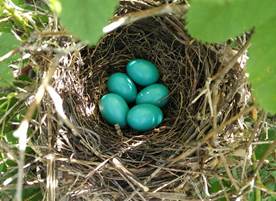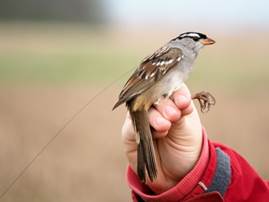|
Margaret Eng
Toxicology Centre University of Saskatchewan 10:30AM - 11:30AM, in BioSci 1103 We live in a contaminated world, with approximately 23,000 chemicals registered for use in Canada, in addition to numerous contaminants that are unintentionally released in industrial processes. There are many challenges to deciphering the effects of these contaminants on wildlife populations. Laboratory assessments often lack ecological relevance, and conversely the majority of field assessments are correlative in nature. I use a combination of laboratory and field approaches and integrate methods from multiple disciplines (molecular biology, physiology, neurobiology, behaviour) to make causal linkages between contaminant exposure and effects in birds. I will present two case studies from this research. The first demonstrates the use of predictive genotyping, field manipulations, and molecular diagnostics to verify that 2 wild bird species (European starlings and gray catbirds), like the domestic chicken, are highly sensitive to dioxin-like compounds – results that can directly inform risk assessment without extensive toxicity testing on wild birds. In the second example, I used a combination of captive behavioral trials, controlled exposures in the field, and automated telemetry to demonstrate that field-realistic concentrations of a neonicotinoid insecticide cause appetite suppression, body mass loss and migratory delays in migrating white-crowned sparrows. These results link neonicotinoid exposure to population-level consequences, as the timing of migration is critical and delays are known to affect survival and reproduction. This research highlights how we can increase our capacity to answer fundamental and applied questions in animal biology and ecotoxicology by Integrating methods across levels of biological organization, and merging field studies with captive studies and laboratory analysis in novel ways. Special time and place, Room 3110 at 10:30 - 11:30 Ayo Adurogbangba PhD. Candidate University of Sherbrooke RNA silencing is a major mechanism of constitutive antiviral defense in plants. Arabidopsis encodes four Dicer-like (DCL) proteins and ten different Argonaute (AGO) proteins that are specialized to function in different RNA silencing-related mechanisms. We have previously shown that AGO2 plays an important role in protecting plants against viruses, including Potato virus X (PVX) in Arabidopsis. However, despite having a functional AGO2 protein, Nicotiana benthiana is highly susceptible to PVX. Using a transient expression system in N. benthamiana leaves, we found that Arabidopsis AGO2 (AtAGO2), but not N. benthamiana (NbAGO2), possesses antiviral activity against PVX. Consistent with this, we find that activity of NbAGO2, but not AtAGO2, is supressed by the PVX suppressor of RNA silencing, P25. Therefore, we generated transgenic tomato and N. benthamiana plants containing AtAGO2 and NbAGO2 constructs. These transgenic lines were inoculated with PVX and viral accumulation levels were assessed. Recent results of these assays will be discussed. In addition, we have observed natural variation in AtAGO2 in naturally occurring Iberian Arabidopsis wild accessions and found that certain polymorphisms correlate with the degree of susceptibility to PVX and to Turnip mosaic virus (TuMV) but not with susceptibility to Cucumber mosaic virus (CMV). Our results indicate that natural variation in AGO2 can have important effects on infection for some, but not all viruses.
|
Archives
February 2021
|



